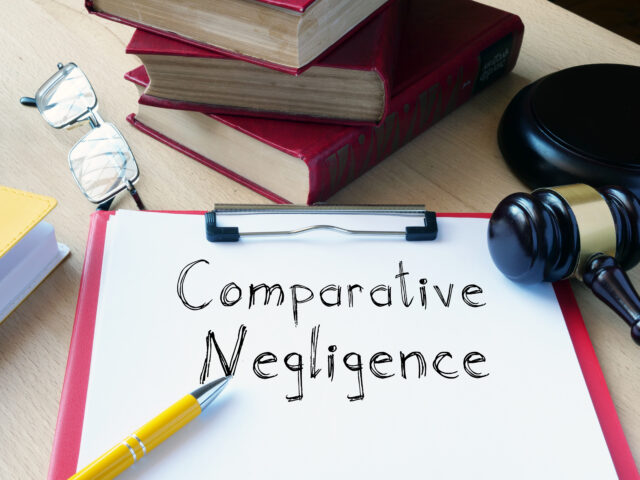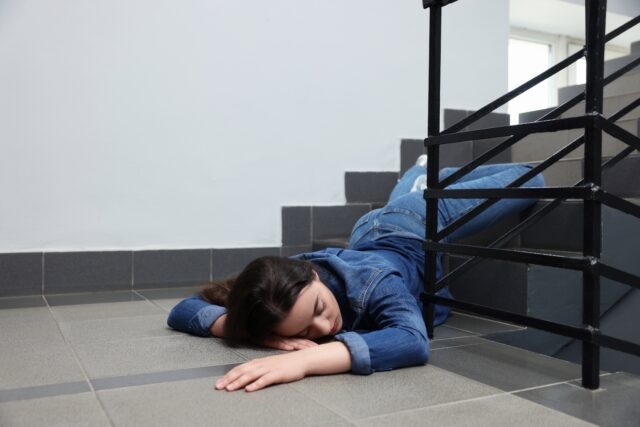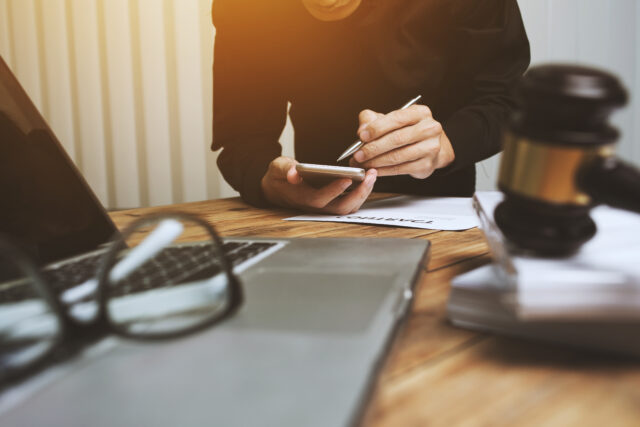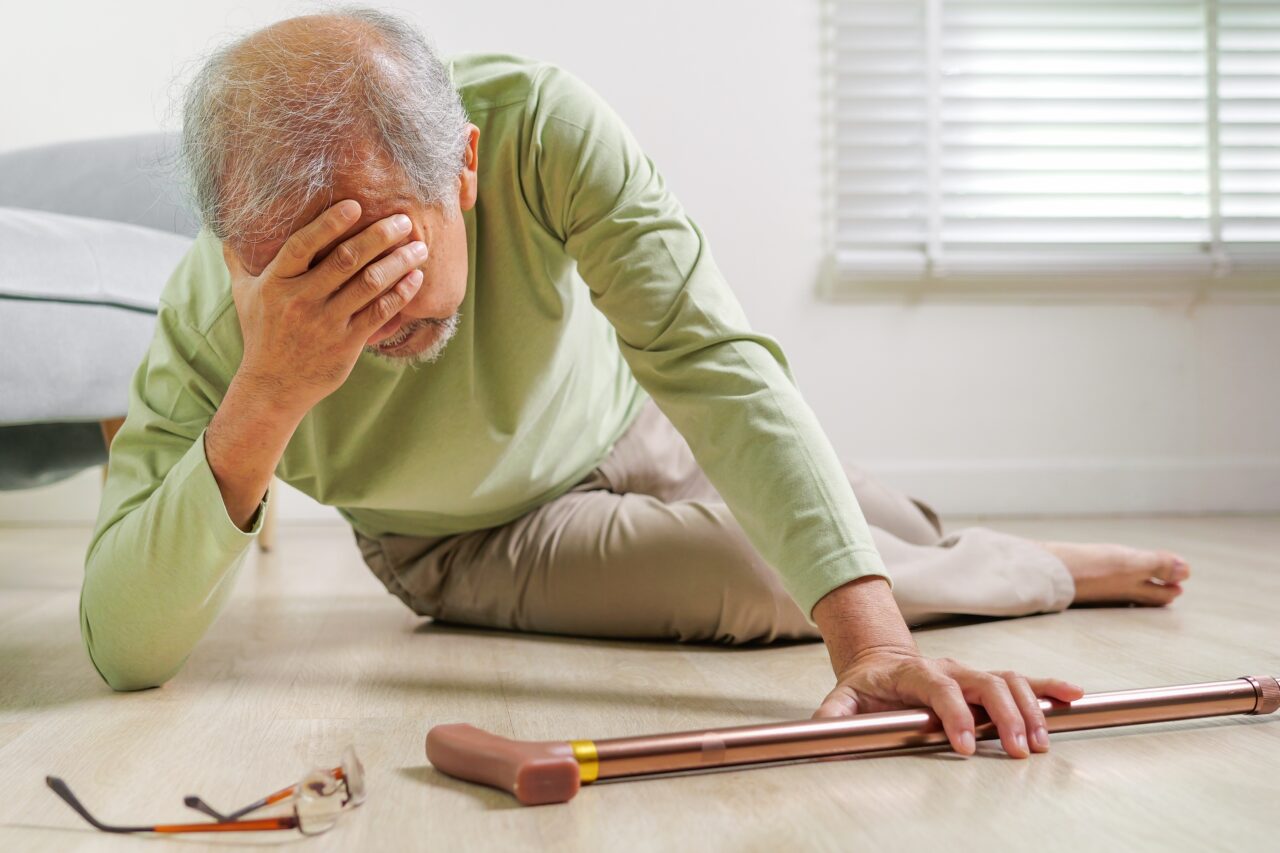If you were partially at fault for a slip-and-fall accident, you may be wondering if you can still file a claim. It’s understandable to feel unsure and concerned about your options. The good news is that, in many cases, being partially at fault doesn’t necessarily bar you from pursuing a claim. Each case is unique, and the specific circumstances will determine the outcome.
It’s important to consult a Fort Smith personal injury attorney who can evaluate your case and guide you on the best course of action. They can help you understand your rights, handle the legal process, and maximize your chances of receiving compensation. Don’t hesitate to contact an attorney near you to discuss your slip-and-fall accident and protect your interests.
Understanding Slip-and-Fall Liability
Slip-and-fall accidents can occur anywhere, from public sidewalks to private properties. Victims often blame themselves for their falls, believing that they have no legal recourse if they are partially at fault. Many victims assume they cannot file a claim if they were partially responsible for their fall, but this is not necessarily true. It’s important to understand that liability in slip-and-fall cases is not always straightforward. Just because you were partially responsible for your fall doesn’t mean you cannot file a claim.
Negligence and Your Rights
 Knowing that more than one party can be at fault for accidents and the resulting injuries is essential to understanding your rights in a slip-and-fall case where you were partially at fault. In many states, certain negligence laws allow partially at-fault victims to recover compensation even if they were partially responsible for their accident. The specific laws vary from state to state. Accidents are rarely black and white, and assigning fault as a percentage allows for a fairer distribution of liability.
Knowing that more than one party can be at fault for accidents and the resulting injuries is essential to understanding your rights in a slip-and-fall case where you were partially at fault. In many states, certain negligence laws allow partially at-fault victims to recover compensation even if they were partially responsible for their accident. The specific laws vary from state to state. Accidents are rarely black and white, and assigning fault as a percentage allows for a fairer distribution of liability.
Available Compensation Depends on Your State and Degree of Liability:
- In some states, victims can recover compensation even if they are 99 percent at fault for their accidents and injuries. For example, California and Florida follow this negligence principle.
- In other states, victims can recover damages only if they are less than 50-51 percent at fault. Texas and Georgia follow these rules.
- Still, victims cannot recover compensation in other states if they share fault. Alabama and Maryland are two of them.
How Your Compensation is Affected
If you were 30 percent at fault for your slip-and-fall accident, your settlement or award would be reduced by 30 percent. However, if you were found to be 50 percent or more at fault in some states, you may not be eligible for compensation.
Common Situations Where Slip-and-Fall Victims May Share Fault:
While each slip-and-fall case is unique, there are common situations where victims may share fault. It’s important to understand these situations, as they may impact your ability to file a claim if you were partially at fault for your fall.
Ignoring Warning Signs
If a property owner placed visible caution signs to warn of a slippery or hazardous surface, they may argue that you should have avoided the area or taken precautions. Ignoring warning signs may contribute to a finding of partial fault.
Wearing Inappropriate Footwear
Walking on a slippery surface in high heels or worn-out shoes may increase the fall risk. If you were wearing inappropriate footwear at the time of the accident, the defense may use this as an argument to shift some of the blame onto you.
Being Distracted (Phone Use)
Using your phone while walking can distract you and contribute to a slip-and-fall accident. If you were texting or looking at your phone at the time of the accident, the defense may argue that you were not paying attention and share fault accordingly.
Trespassing or Being in a Restricted Area
If you slipped in a non-public or off-limits area, proving liability may be more challenging. Property owners have a higher duty of care towards lawful visitors, and their liability may be limited in cases where you were trespassing or in a restricted area.
Running or Engaging in Risky Behavior
Engaging in risky behavior like running in a grocery store, mall, or parking lot can complicate your slip-and-fall case. The defense may argue that your actions contributed to the accident and establish shared fault.
How Property Owner Negligence Still Plays a Role
While you may have some level of responsibility for your slip-and-fall accident, it’s essential to consider the role of property owner negligence. Property owners have a duty of care to maintain safe conditions for visitors, and their negligence can still contribute to your fall, even if you were partially at fault.
Duty of Care in Premises Liability
Property owners have a legal obligation to keep their premises reasonably safe for visitors. This duty of care requires them to address hazardous conditions promptly, provide proper warnings, and take reasonable precautions to prevent accidents.
Failure to Address Hazardous Conditions
Wet floors, uneven surfaces, poor lighting, and loose carpeting are examples of hazardous conditions that can contribute to slip-and-fall accidents. If the property owner fails to address these conditions, they may be held liable for any resulting injuries.
Failure to Warn About Dangerous Conditions
If no warning signs or cautionary measures were in place to alert visitors of potential dangers, the property owner may still be held accountable. Failing to warn about dangerous conditions can be seen as negligence on their part.
Proving the Property Owner’s Negligence
Various types of evidence can be valuable in proving the property owner’s negligence in your slip-and-fall case. These may include surveillance footage, maintenance records, incident reports, and witness testimony. Strong evidence can help establish that the property owner did not exercise reasonable care and is, therefore, partially responsible for your accident.
Proving Liability in a Partial Fault Slip-and-Fall Case
 Successfully proving liability in a slip-and-fall case where you were partially at fault requires gathering strong evidence and presenting a compelling argument. The following strategies can help strengthen your case:
Successfully proving liability in a slip-and-fall case where you were partially at fault requires gathering strong evidence and presenting a compelling argument. The following strategies can help strengthen your case:
- Gathering Strong Evidence: Collect as much evidence as possible to support your claim. It may include taking photographs or videos of the accident scene, obtaining medical records that document the extent of your injuries, and securing incident reports filed with the property owner.
- Witness Testimony: Statements from other shoppers, employees, or passersby who witnessed your fall can provide valuable support for your case. Their testimony can help establish liability and show that the property owner’s negligence played a significant role in your accident.
- Expert Testimony: Engaging the services of safety experts who specialize in slip-and-fall accidents can strengthen your case. These experts can evaluate the hazard that caused your fall and provide professional insights into the property owner’s negligence.
How a Personal Injury Lawyer Strengthens Your Case
The legal complexities of a slip-and-fall case can be overwhelming, especially when you are partially at fault. A personal injury lawyer can be your advocate throughout the claims process. Here’s how they can strengthen your case:
- Counter-insurance company tactics: Insurance adjusters often try to shift blame onto the victim to minimize payouts. A seasoned personal injury lawyer can challenge these tactics and ensure the focus remains on the property owner’s negligence.
- Build a compelling argument: A personal injury attorney will gather strong evidence, consult with experts, and craft a persuasive case to establish liability and maximize your chances of receiving fair compensation.
How Insurance Companies Use Partial Fault to Reduce or Deny Claims
Insurance companies are known for employing tactics to reduce or deny claims, especially when the victim shares some fault in the accident. Understanding their strategies can help you understand the claims process better.
Blaming the Victim to Minimize Payouts
Insurance adjusters often try to shift blame onto the victim in slip-and-fall cases. They may argue that you were careless, distracted, or ignored warning signs to minimize the amount they have to pay out.
Delaying Claims in Hopes of Lower Settlements
Insurance companies may intentionally delay the claims process to put pressure on victims to accept lower settlements. They hope victims will become desperate for compensation and settle for less than they deserve.
Misinterpreting Evidence
Insurance adjusters may twist surveillance footage or manipulate witness statements to favor the property owner and downplay their negligence. They may also misinterpret medical records or downplay the severity of your injuries.
Why Legal Representation is Important
Having a personal injury lawyer by your side is imperative to countering these tactics used by insurance companies. Here’s why legal representation is essential:
- Ensuring fairness: A skilled slip-and-fall accident attorney ensures that insurance companies don’t unfairly assign blame and fight for your right to fair compensation.
- Legal experience: Lawyers have in-depth knowledge of personal injury laws and can strategically navigate the legal process to protect your interests.
- Maximizing your claim: slip-and-fall accident attorneys understand the value of your claim and work to maximize the compensation you receive for your injuries and damages.
What Compensation Can You Receive Even If You Share Fault?
You may still be entitled to compensation if you were partially at fault for a slip-and-fall accident. Here are some types of compensable damages you can pursue:
- Medical Expenses: Compensation for medical expenses covers hospital visits, surgeries, rehabilitation, medication costs, and any future medical care related to your slip-and-fall injuries.
- Lost Earnings: If your injuries prevent you from working, you can recover compensation for lost income. It includes earnings lost during your recovery period and any future loss of earning capacity.
- Pain and Suffering: Compensation for pain and suffering encompasses the physical and emotional distress caused by your slip-and-fall accident. It accounts for the pain, discomfort, anxiety, and decreased quality of life resulting from your injuries.
- Punitive Damages (in Cases of Gross Negligence): In cases where the property owner’s conduct exhibited gross negligence, you may be eligible for punitive damages. Punitive damages are meant to punish the defendant for their reckless behavior and deter others from engaging in similar actions.
Steps to Take After a Slip-and-Fall Accident
If you have been involved in a slip-and-fall accident and believe you may share fault, it’s important to take the following steps to protect your rights and strengthen your potential claim:
Seek Immediate Medical Attention
Even if your injuries seem minor, seek medical attention as soon as possible. Prompt medical care ensures your well-being and establishes a record of your injuries, which can be valuable evidence in your case.
Report the Incident to the Property Owner
Notify the property owner or the responsible party about your slip-and-fall accident. Request a written incident report and make sure to retain a copy for your records.
Document the Scene
If possible, capture photographs or videos of the accident scene, including any hazardous conditions, lack of warning signs, and your injuries. Visual evidence can significantly strengthen your case.
Avoid Giving Statements to Insurance Adjusters
Before speaking with insurance adjusters or providing any recorded statements, it’s important to consult with a slip and fall injury lawyer. They can guide you on how to handle these interactions to protect your rights.
Contact a Personal Injury Lawyer
To successfully manage your slip-and-fall case, it’s in your best interest to consult a personal injury attorney well-versed in premises liability claims. An experienced personal injury attorney can evaluate your case, prove negligence, and maximize your chances of receiving fair compensation.
Were You Injured in a Slip-and-Fall Accident? Contact a Personal Injury Lawyer Today
 Don’t assume that being partially at fault for your slip-and-fall accident means you cannot file a claim. Even if you believe you were partially at fault, you may still deserve full or partial compensation for your injuries. Consulting with a personal injury lawyer is critical to understanding your rights and pursuing the compensation you deserve. A slip-and-fall injury attorney can handle the legal process, gathering evidence, interviewing witnesses, and building a strong case on your behalf.
Don’t assume that being partially at fault for your slip-and-fall accident means you cannot file a claim. Even if you believe you were partially at fault, you may still deserve full or partial compensation for your injuries. Consulting with a personal injury lawyer is critical to understanding your rights and pursuing the compensation you deserve. A slip-and-fall injury attorney can handle the legal process, gathering evidence, interviewing witnesses, and building a strong case on your behalf.
Take action now and contact a skilled lawyer near you for a free consultation. Time is of the essence, as the statute of limitations for slip-and-fall cases varies by state. Protect your rights by seeking legal representation today.

